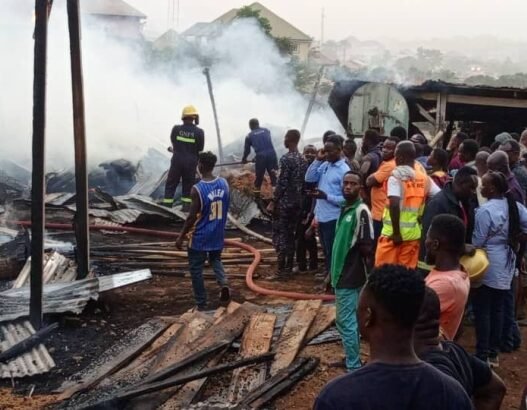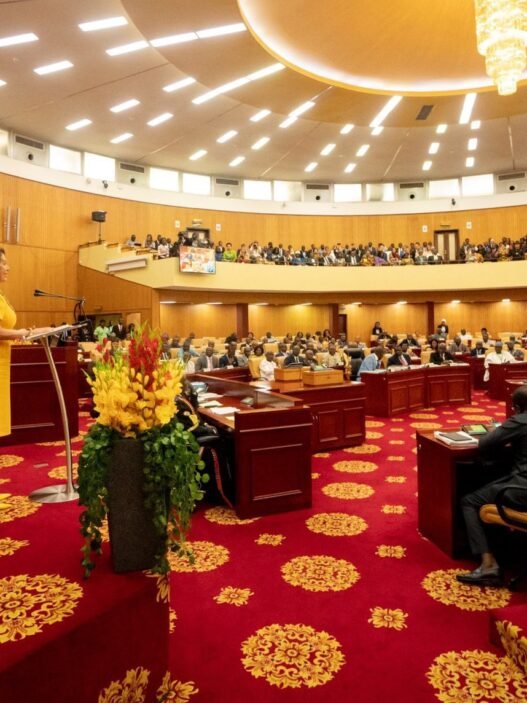The National Democratic Congress (NDC) has filed a notice of appeal challenging the Accra High Court’s decision to grant mandamus applications filed by the New Patriotic Party (NPP) in four contentious constituencies: Tema Central, Ablekuma North, Okaikwei Central, and Techiman South.
The High Court ruling, delivered on January 4, 2025, directed the Electoral Commission (EC) to finalize the collation of results in the disputed constituencies by January 6, 2025, and mandated the Inspector General of Police (IGP) to ensure adequate security during the collation process.
NDC’s Grounds for Appeal
The NDC’s appeal reflects its dissatisfaction with the High Court’s orders, which it views as procedurally flawed and prejudicial. Key aspects of the High Court’s decision being contested include:
- Mandamus Justification:
- Justice Forson Agyapong, who presided over the case, ruled that the NPP candidates met the requirements for a mandamus application.
- According to the judge, the applicants demonstrated:
- A failure of the EC to perform a public duty.
- That they had formally requested the performance of this duty and were refused.
- Substantial prejudice caused by the EC’s inaction.
- The NDC disputes the application of these criteria, arguing that the ruling undermines the integrity of the electoral process.
- Security Concerns:
- The High Court directed the IGP to provide armed security for the collation exercises, a decision the NDC believes could intimidate party agents and influence the outcome.
- Broader Legal Implications:
- The NDC’s appeal also challenges similar orders issued by the High Court on January 1, 2025, in related cases.
Background to the Dispute
The disputed constituencies have been the subject of intense political contention since the December 2024 General Elections. Both the NDC and NPP parliamentary candidates claim victory in these constituencies, with the collation of results delayed due to disagreements and disruptions.
- Tema Central: The EC suspended collation after disturbances during the electoral process.
- Ablekuma North and Okaikwei Central: Disputes over polling station results have delayed final declarations.
- Techiman South: Long-standing tensions between NDC and NPP supporters have further complicated the collation process.
The NPP’s mandamus applications sought to compel the EC to fulfill its constitutional duty of finalizing and declaring results in these constituencies, a move the High Court upheld.
NDC’s Concerns
In its appeal, the NDC argues that:
- The High Court failed to consider the potential for further electoral disputes arising from rushed collation exercises.
- The decision undermines the constitutional independence of the EC, as it appears to place judicial pressure on the commission.
- The ruling disregards procedural flaws in the collation processes in the disputed constituencies.
Implications of the Appeal
The NDC’s appeal adds another layer of complexity to the ongoing electoral disputes, with significant political and legal implications:
- Delay in Finalizing Parliamentary Results:
- The appeal may stall the finalization of results in the four constituencies, leaving parliamentary representation in these areas unresolved.
- Potential Constitutional Debate:
- The case raises broader questions about the balance of power between the judiciary, the EC, and political parties in Ghana’s electoral process.
- Impact on Parliamentary Composition:
- The outcome of these disputes could influence the composition of Ghana’s next Parliament, with both parties vying for a majority.
Next Steps
As the appeal progresses, the NDC and NPP are expected to intensify their legal and political strategies. The Electoral Commission, meanwhile, faces mounting pressure to ensure a transparent and impartial resolution to the disputes.
The Court of Appeal is likely to deliberate on the case in the coming days, with a decision that could either uphold or overturn the High Court’s ruling.





















